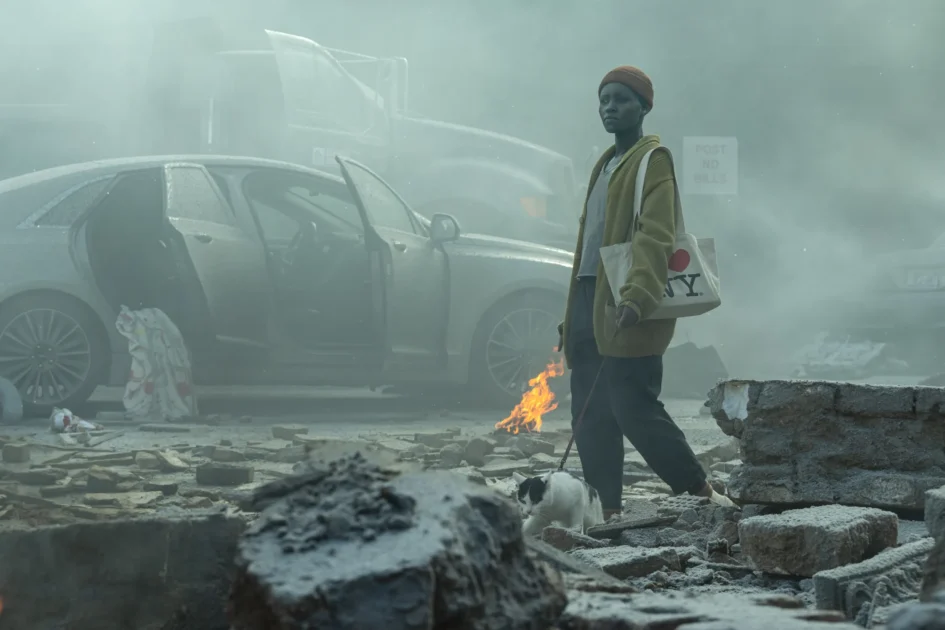In a movie landscape where the horror genre often relies on overt scares and relentless gore, A Quiet Place emerged as a refreshing film that was both suspenseful and minimalistic. Directed by John Krasinski, the original film captivated audiences with its ingenious use of silence and a portrayal of a family’s struggle for survival in a world where making the slightest sound can be deadly. Its innovative approach, combined with stellar performances and a deeply emotional core, set a high bar for any follow-up.
Fortunately, the sequel to this film was equally compelling, showing how the family moved on from the loss of its patriarch.
With such a strong pairing of films, my initial reaction to hearing about plans for a prequel was one of skepticism. I feared it might fall short unless executed flawlessly. Over the course of two movies, we learned about these terrifying alien predators and discovered the means to defeat them. This narrative arc seemed satisfyingly complete, raising the question of what more a prequel could offer.
To maintain interest, I felt the prequel would need to delve into the aliens’ origins or introduce fresh, compelling elements to their backstory. Otherwise, it risked feeling redundant in a franchise that has set such a high standard for tension and storytelling.
A Quiet Place: Day One, from writer-director Michael Sarnoski of Pig, begins with the introduction of Samira (Lupita Nyong’o), a terminally ill cancer patient living in a hospice just outside New York City. With her only friends being her cat, Frodo, and Reuben (Alex Wolff), a care worker, Samira is seemingly waiting for her death.
One day she goes on a field trip to New York under the premise of getting pizza, something she treasured from her childhood. But the trip is cut short after a meteor shower decimates the city, bringing with it the alien monsters seen in the other films. Knowing her life is near its end, Samira braves the desolated city, wanting nothing more than to visit the pizzeria from her youth. Along the way she meets a terrified law student named Eric (Joseph Quinn), who risks his life to help her complete the journey.
From that synopsis, one might think that Samira has a death wish. While we, as the audience, understand the lethality of these creatures, Samira initially does not. Along with the other survivors, she quickly learns that silence is their only safeguard against instant annihilation.
Despite this, Samira seems to lack a sense of self-preservation. Her diagnosis of terminal cancer plays a crucial role in this, allowing her to face the nightmare scenario with extreme caution, but little regard for her own safety. The only things anchoring her to her goal — a deeply sentimental destination — are her cat and a person named Eric.
While watching the film, I initially felt that Samira’s choices were completely irrational, even when considering her terminal condition. However, as the story progressed, it became clear that there was profound meaning behind her actions. Samira was determined to favor death on her own terms, seeking out a place where she had felt love. By the film’s conclusion, she achieved this, finding happiness and peace in the movie’s final moments. Her journey, though seemingly reckless, was ultimately about reclaiming control and finding solace amidst chaos.
Samira’s story is profoundly moving, and Lupita Nyong’o’s performance in the role is nothing short of extraordinary. While Lupita has achieved great success in films like Us and the Black Panther series, this film places the entire narrative weight squarely on her shoulders. She delivers a stunning, award-worthy portrayal of a woman aware of her limited time yet determined to feel truly alive one last time. If she is not in contention for a lead actress award come award season, it would be an incredible disappointment.
I found only a couple of issues with A Quiet Place: Day One. Throughout much of the movie’s quiet parts, the director made the odd choice of including a high-pitched squeal, similar to the sound of ringing ears. This baffling decision doesn’t seem to be heard by the characters on screen and does nothing to enhance the tension of the scenes. Instead, it appears intermittently and annoyingly during the silent moments.
The other issue I had was that the story doesn’t add anything new to the lore of the creatures. They served more as a background annoyance to Samira’s journey, rather than a focal point. The movie could have substituted any other disaster in their place without changing the narrative. This is somewhat disappointing for anyone seeking to learn more about the overall story of the franchise.
A Quiet Place: Day One earns a solid four out of five stars. Lupita Nyong’o puts the entire movie on her back and carries it to a strong finish, pouring her heart and soul into the role. Her commitment is evident to anyone who watches the film. It’s her exceptional performance that keeps the film afloat, especially given its limited focus on the monsters we know from the franchise.
The movie, intended to depict the initial days of the alien attack, unfortunately, does not delve deeply into that narrative. This lack of focus on the origins of the chaos is a significant letdown, leaving fans wanting more backstory and development. However, the hope remains that future sequels will explore this post-apocalyptic world in greater detail, offering a more comprehensive look at the early days of the alien invasion.

